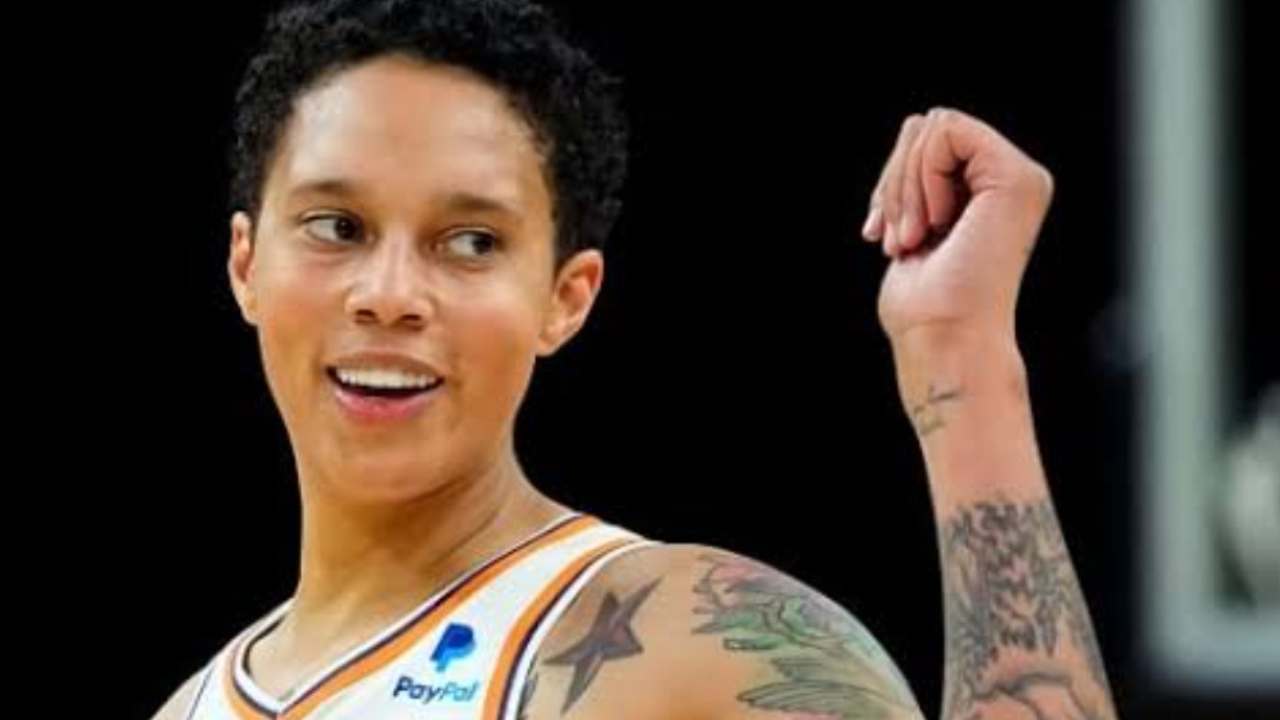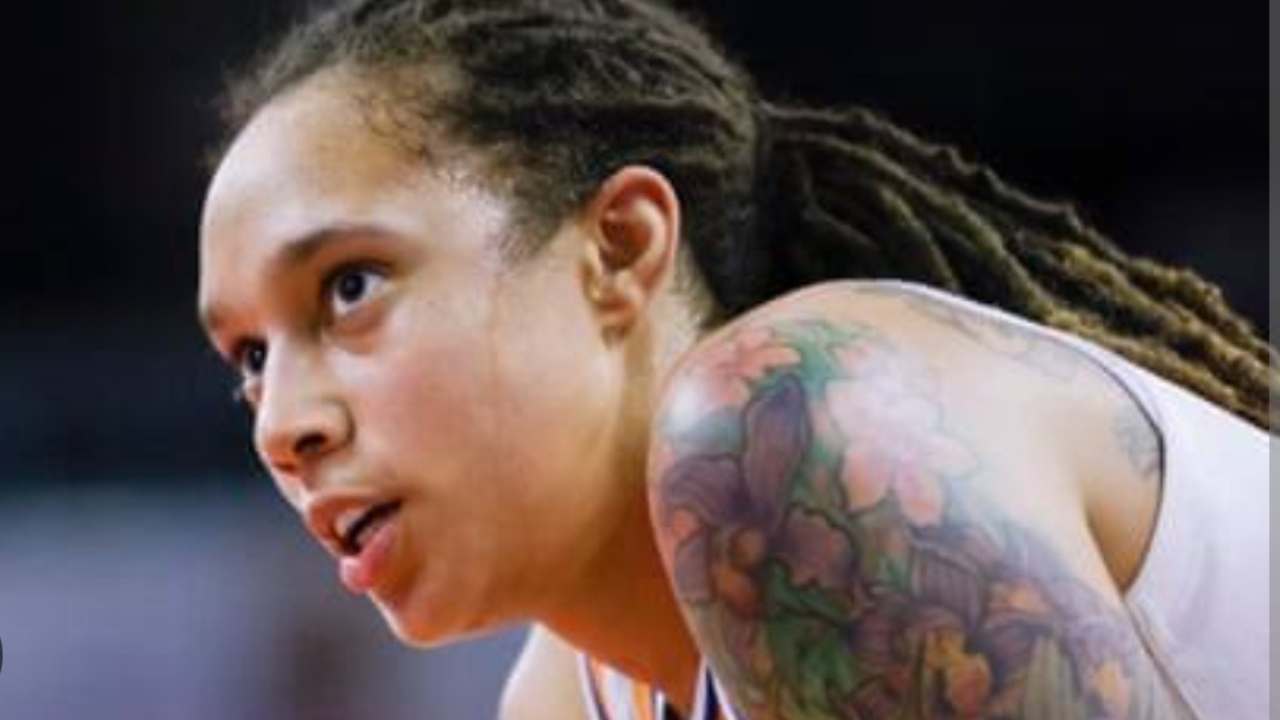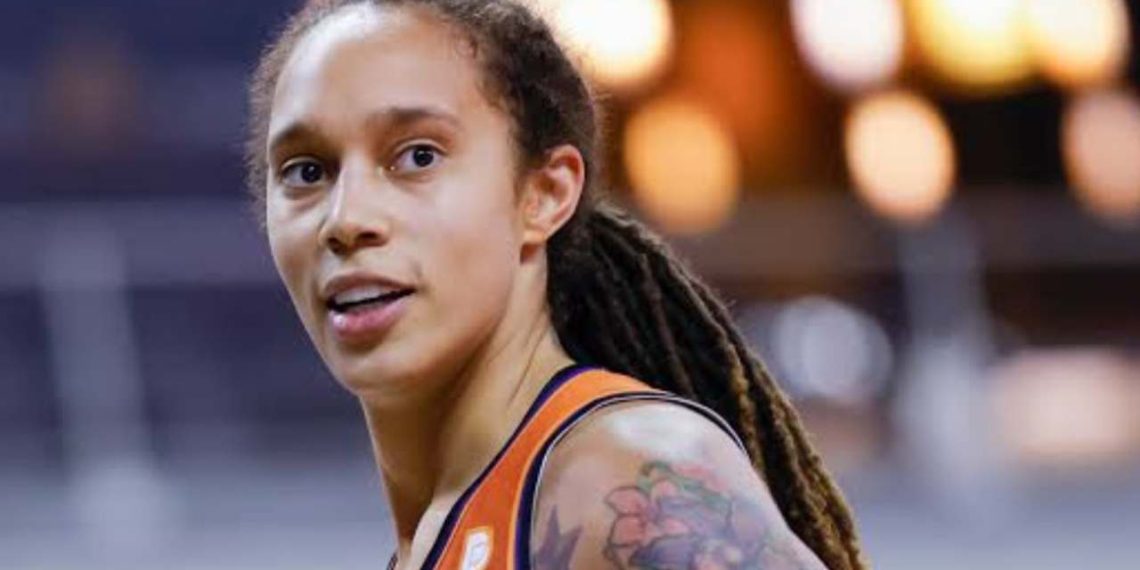Nearly two years have elapsed since W.N.B.A. luminary Brittney Griner endured a nine-month term for cannabis possession in a Russian correctional facility.
Recently, she has begun candidly discussing the ordeal she endured during her time incarcerated.
In an interview, Griner revealed feeling dehumanized when a guard affixed a chain to her handcuffs, likening her treatment to that of a dog.

Additionally, she recounted an instance where doctors compelled her to disrobe for nude photographs. In her bleakest moments, thoughts of suicide loomed large.
Griner will soon release a memoir detailing her journey, titled “Coming Home,” slated for release this Tuesday.
Griner, now 33, ventured to Russia in February 2022 to pursue basketball prospects, with the potential to earn over $1 million. However, her plans took a dire turn when customs officials in Moscow discovered a cartridge of medically prescribed cannabis oil in her possession, an act deemed illegal in Russia.
“Oh, this is about to be bad,” she recollected upon realizing the gravity of the situation. Subsequently, officials uncovered another cartridge.
In an interview with ABC on Wednesday, Griner characterized packing the cartridges as an “absent-minded” mistake amid hurried departure from her residence.
According to a source, the officials coerced her into signing documents in Russian, charging her with smuggling a “significant amount” of marijuana—0.7 grams by their standards—into Russia. She faced a potential 10-year imprisonment and a fine equivalent to $15,000.

Her predicament took a dire turn when Russia’s invasion of Ukraine thrust her confinement into the global spotlight.
Griner recounted adapting to the harsh prison conditions, including the absence of hairdryers post-shower, prompting her decision to trim her locs to ward off pneumonia—an uplifting moment amidst adversity.
Confined to a room shared with 20 other women and a bathroom shared among 50, she endured grueling workdays sewing Russian military attire for 12 to 15 hours.
The food provided was often spoiled, exacerbating her plight. Communication with her wife, Cherelle, and other family members was infrequent at best.
When guards spied on her through a crevice in the cramped cell, thoughts of suicide plagued Griner.
“I’ve never felt so filthy,” she confided to The Times. “I was utterly miserable.”
These sentiments resurfaced during her interview.
A fellow English-speaking inmate cautioned Griner to steer clear of medical examinations due to the prevalence of herpes and H.I.V. in the prison, as reported.
Another prisoner, rumored to be a former veterinarian, assisted her with an eye infection.
Griner endured harassment from prison guards, including invasive questions about her anatomy.
On one occasion, a guard forcibly removed her towel after a shower, leaving her feeling vulnerable and powerless.
Initially, Griner’s Russian lawyers facilitated her access to a basketball, allowing her to maintain some semblance of normalcy through practice sessions. However, the monotony and physical decline began to take its toll.
Seeking solace, she turned to the Bible and cherished a note from her father, reminding her of his unwavering love and support.
To combat idleness and maintain her physical fitness, she volunteered to shovel snow at the penal colony.
In July, Griner pleaded guilty in hopes of leniency, banking on deference to Russian President Vladimir Putin.
Desperate for assistance, she wrote to President Biden, pleading not to be forgotten. Biden, through communication with Griner’s wife, urged discretion as negotiations for a prisoner swap were underway.
Meanwhile, Griner’s teammates from the Phoenix Mercury and Rev. Al Sharpton rallied support for her cause. Influential figures such as Kerry Washington and Roxane Gay also lent their voices, amplifying awareness of Griner’s plight.
Despite these efforts, a Russian judge sentenced her to nine years in a penal colony situated on the grounds of a former gulag in Mordovia.
After enduring months of arduous labor, punctuated by occasional acts of kindness from fellow inmates, such as a larger bed and mittens, Griner received news from the U.S. embassy in November 2022 that a prisoner exchange was imminent.
In December, she was transferred to another facility, where a guard discreetly passed her a note revealing her impending release.
The following day, she was subjected to another invasive round of photographs after being forced to undress completely.
Subsequently, she was flown to Abu Dhabi, where she was received by the State Department in exchange for Viktor Bout, a notorious Russian arms dealer.
Griner finally returned home in December.Upon her return, Griner endeavored to reintegrate into normalcy, despite her wife having to relocate due to their address being exposed online.
She resumed her duties with the Mercury in May. However, she admitted to feeling like a changed person.
“People say it’s OK to not be OK,” she reflected. “But what does that really mean? Just giving in to tears or anger whenever they come? Or does it mean discussing it openly? I had to figure that out.”
Griner now grapples with lingering anxieties, particularly concerning travel (though she plans to compete in the Olympics in Paris), and experiences claustrophobia in confined spaces.
Griner disclosed to The Times her intentions to persist in her basketball career, champion the release of other detained Americans, such as Paul Whelan and journalist Evan Gershkovich, and nurture her personal life.
Excitingly, she and her wife are anticipating the arrival of their first child. The amazing narrative of Griner’s incarceration will be immortalized in both a documentary by ESPN and a scripted series by ABC Signature.
These projects are poised to shed light on her harrowing journey and amplify the call for justice and reform.





